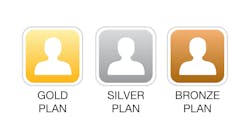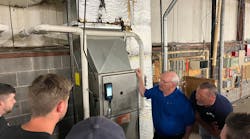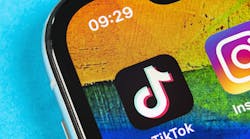It's impossible to quantify the cost of a bad hire. It's better to be short-handed than it is to hire people you shouldn't have. I've done a lot of recruiting in my 35 years in this business, and I never hired anyone I wasn't completely convinced would be a sure-fire winner.
Here are tips on interviewing potential hires that I don't think you'll see elsewhere.
Never hire anyone on their first interview. They will never be that person again.
Remember that interviewees are putting their best foot forward. If they smell bad, are poorly groomed, make inappropriate comments, or are uncooperative or impatient in any way, they will be from now on.
Never hire anyone on their first interview. They will never be that person again.
Prior to the first interview:
Timeliness. The candidate must be on time for their first interview. Anyone who is even one minute late for their first interview is a person who runs habitually late. Experience taught me not to bother giving an in-person interview to, or hire, anyone who arrived late for their first interview.
Legible handwriting. Even if your employment application is digital and they type it in, have them hand write some things. Other people are going to need to be able to read their handwriting in order to properly do their job, so it's got to be legible.
During the interview:
Don't do all the talking. Let candidates talk about as much as they desire. The more they talk, the more comfortable they'll get around you, and the more you'll learn about them.
If they can't at least describe some sort of sales procedure, they're not a salesperson.
Show candidates who will be selling for you your prices. Ask them if they've ever sold at those prices and if they believe they can sell at those prices.
Pick a product and ask them how they would go about selling it to you. If they can't at least describe some sort of sales procedure, they're not a salesperson. Period.
Walk candidates out to their vehicle. See how it looks inside. If they're going to be driving one of your company vehicles, that's how the inside of it will look.
Between interviews:
Did the job candidate initiate any kind of follow-up communication? My experience has been that just about anyone who follows-up in writing, be it a letter, an email, a text, or a "Thank You" card, will probably get hired.
Contact their previous employer. It's true that most previous employers will only confirm dates of employment, but that's not always the case. A great question is, "Would you re-hire the employee if they asked for their job back?"
Contact their references. References tend to be more open and honest than previous employers. It's true that candidates only list people they're confident will give them a good reference, but that doesn't always go according to their plan. For instance, my son-in-law had already tried three jobs in sales, and failed miserably in all three of them. When he applied for yet another sales position, they called me and asked me if I thought he'd make a good salesman. I told them the truth, and as far as I'm concerned, I did him a favor.
If you can't reach a job candidate about a second interview, can you imagine how difficult it will be to get that person on the phone to run a late night, holiday, or weekend call?
Do a nationwide background check. I almost hired a murderer once.
Call the job candidate on the telephone to schedule the second interview. Don't leave a voice mail if there is no answer. Just keep calling every now and then until you can get them on the phone. People do screen their calls, but wouldn't someone who applied for a job at your company, and that you told you'd be calling, be on the lookout for your call? If you can't reach a job candidate about a second interview, can you imagine how difficult it will be to get that person on the phone to run a late night, holiday, or weekend call?
Second Interview:
"Nobody told me about that in the interview!" is one thing you don't want to hear the first day on the job. There are certain measures you can take to avoid this. They are:
- Show candidates every single piece of paperwork they'll be required to submit and any software they'll be required to use.
- Show candidates their work area, and make sure they're happy with it and feel they could be comfortable working there.
- Make sure the candidate understand the hours they're required to work, and any on-call schedule.
Introduce candidates to some of the women in your employ. Don't hire candidates women don't like.
CHARLIE GREER was recently voted the 'Favorite Industry Trainer," and is a member of the HVAC Hall of Fame. For information on Charlie's products, or to get him out to your shop, call 1-800-963-HVAC (4822) or go to www.hvacprofitboosters.com. Email your sales questions to [email protected].









